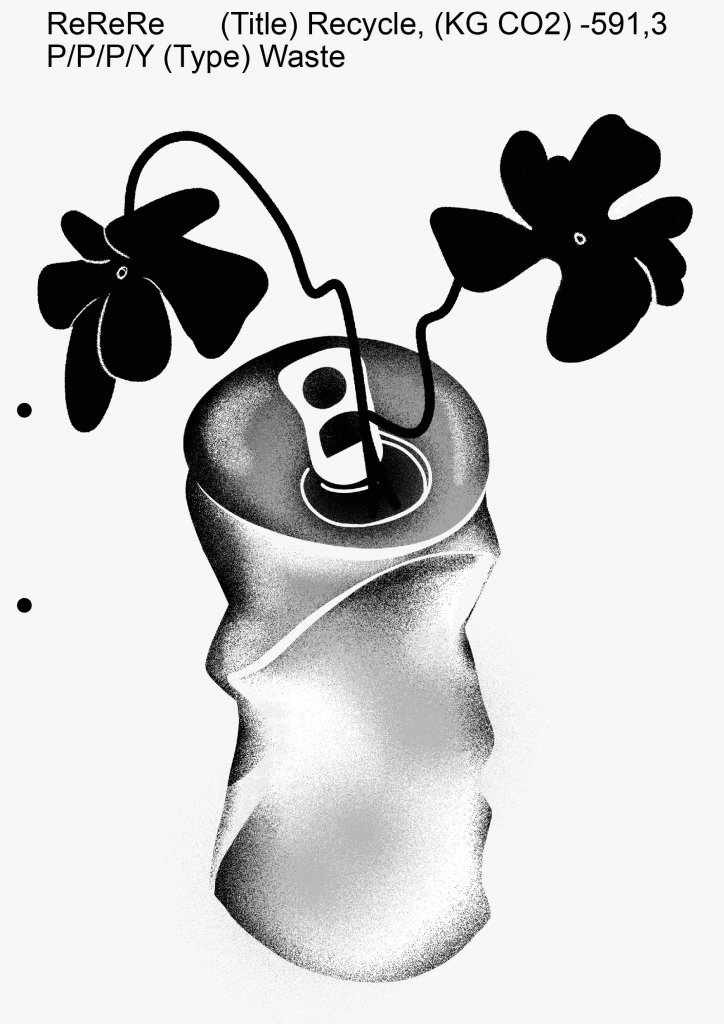
(ReReRe) Recycle
(Impact) -591,3 KG CO2/year
(Date) 28.08.2022
(Author) Shaima Moon
(Illustration) Shaima Moon
In the Netherlands, we produce around 500 kg of waste per person per year. We are currently producing the most trash in history at 1,5 kg of trash per person per day. All this trash is causing serious harm to our environment, wildlife, and health.
Rethink
Chemicals and micro-particles are released during the decomposition of waste. These chemicals cause a number of problems. For example, cigarette butts can contain chemicals such as arsenic and formaldehyde. These toxins can end up in the soil and in freshwater sources, where they affect humans and animals. In fact, 60% of water pollution is attributed to waste.
In addition to water and soil pollution, litter can also pollute the air. Researchers estimate that more than 40% of the world’s waste is burnt in the open, which can release toxic emissions. These emissions can cause respiratory and other health problems, and can even be a trigger for acid rain.
Researchers estimate that over one million animals die each year after ingesting, or becoming entrapped in, improperly discarded trash. Plastic litter is the most common killer of animals, and marine animals are the most notably affected. Over 100,000 dolphins, fish, whales, turtles, and other marine wildlife die yearly after becoming entangled in or digesting plastic litter.
Improperly discarded trash is a breeding ground for bacteria and diseases. Not only does litter spread diseases, viruses, and parasites, but it also attracts rodents, pests, and vermin.
Repurpose
Trash will inevitably exist as long as humans do. When we actually start seeing waste as a resource, we can scale down the demand for the extraction of new ones, thus preserving and protecting our planet’s capacity, habitats, and ecosystems. So we can manage a liveable future for the next generations, too.
Recycling conserves energy, reduces air and water pollution, reduces greenhouse gases, and conserves natural resources. Moving more towards a circular economy is a joint effort. The only way municipalities can recycle waste into resources is when we properly manage it. Check out this link to see what belongs in which bin.
Redesign
As you may have read in our previous ReReRe’s we have already eliminated our food waste by pre-planning our meals and ordering the right amounts. We even recycle our grocery bags. We have also been turning organic waste into soil for our plants through the Bokashi box. Aside from that, we separate all our glass and paper and hope you do as well. In Amsterdam, all plastic waste is separated through machines. We believe that everything that’s still useful should never be disposed of but brought to or picked up by your local thrift shop and we always look for a reused option, over new.
#rerere is our action program to rethink, repurpose and redesign our social and ecological footprint for the better. you can find all our #rereres here. We hope that it inspires you to take action. Because the only way to create a future that includes you plus new generations to come is when we all take action. #timeisup